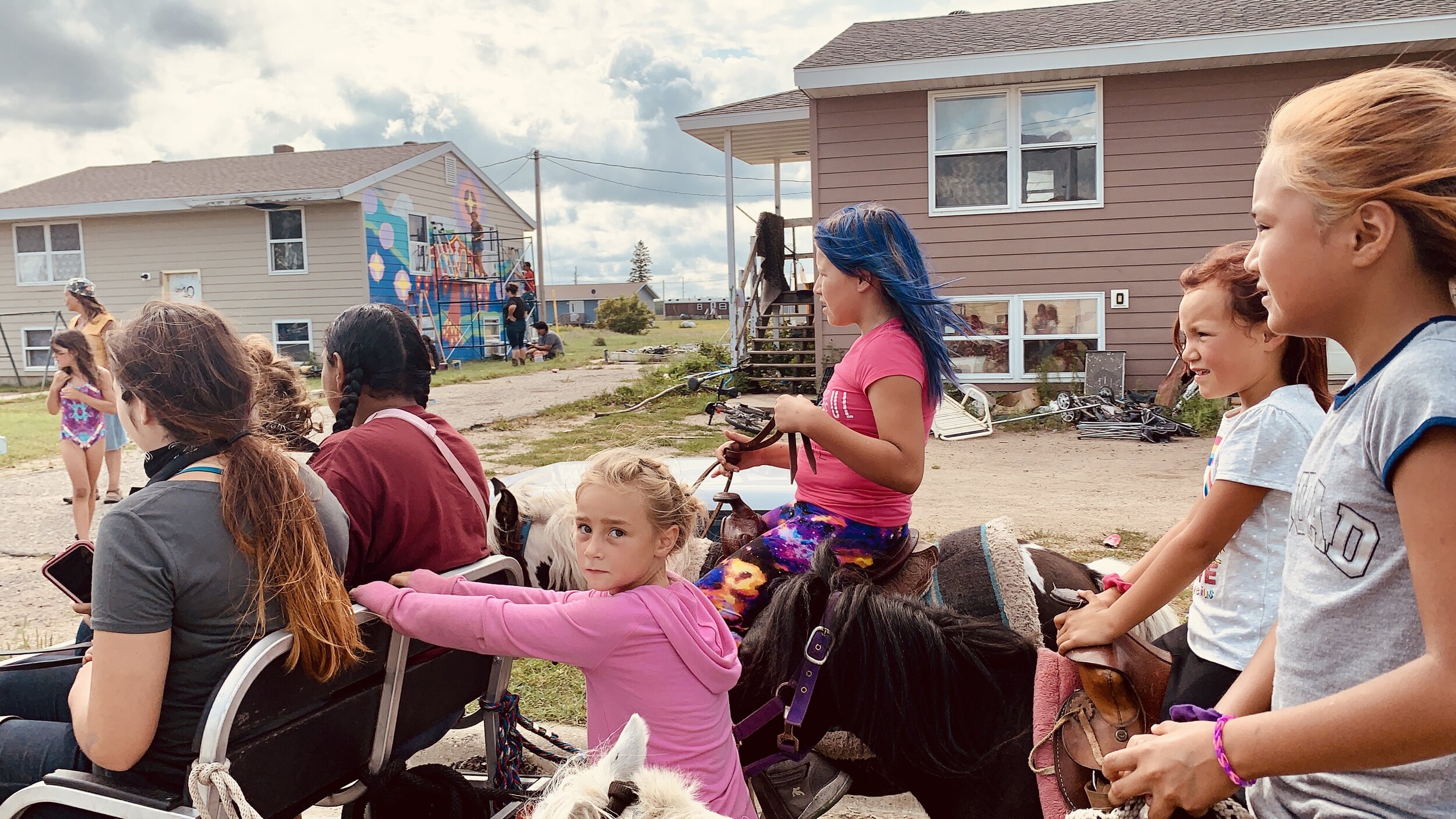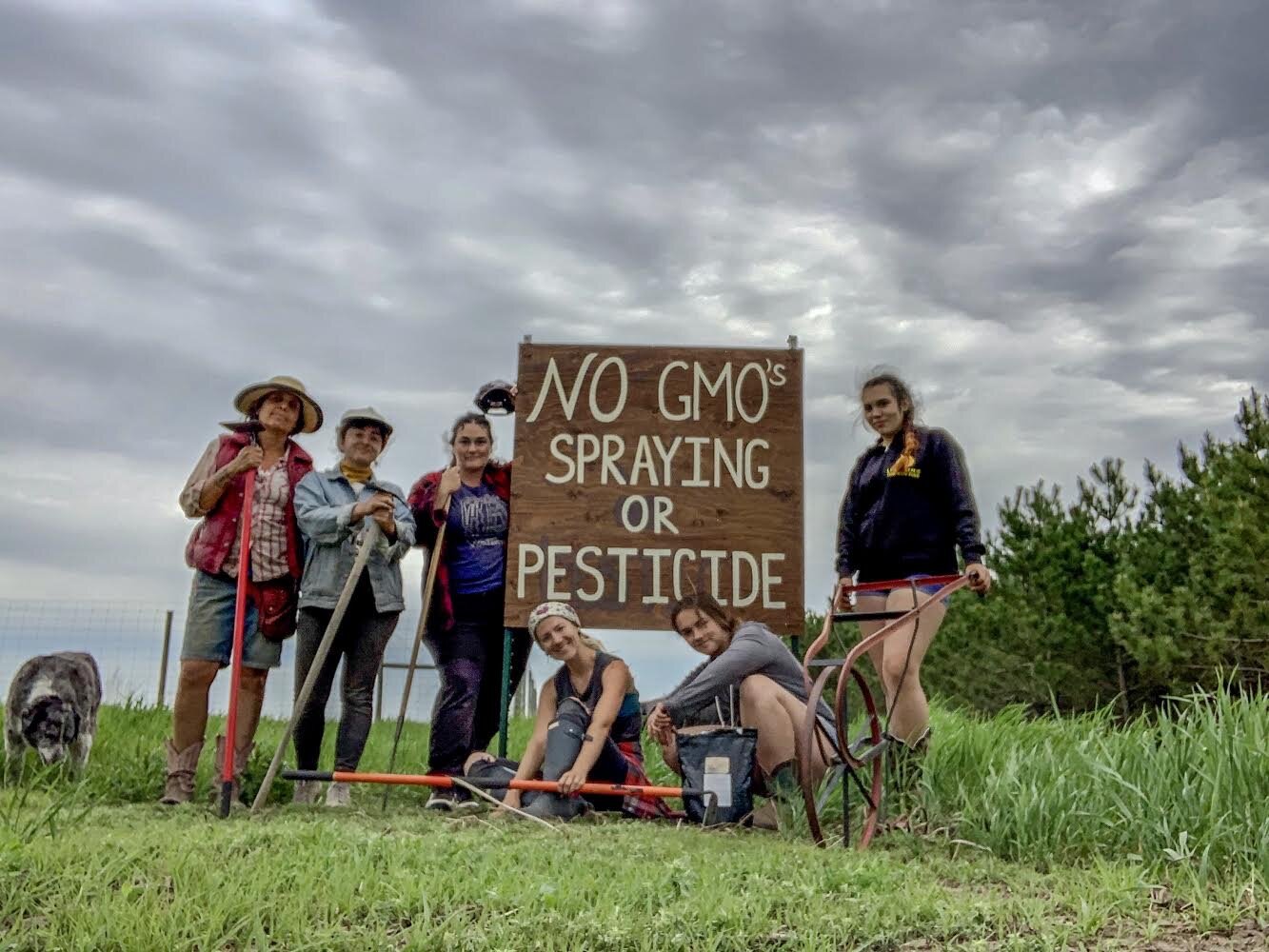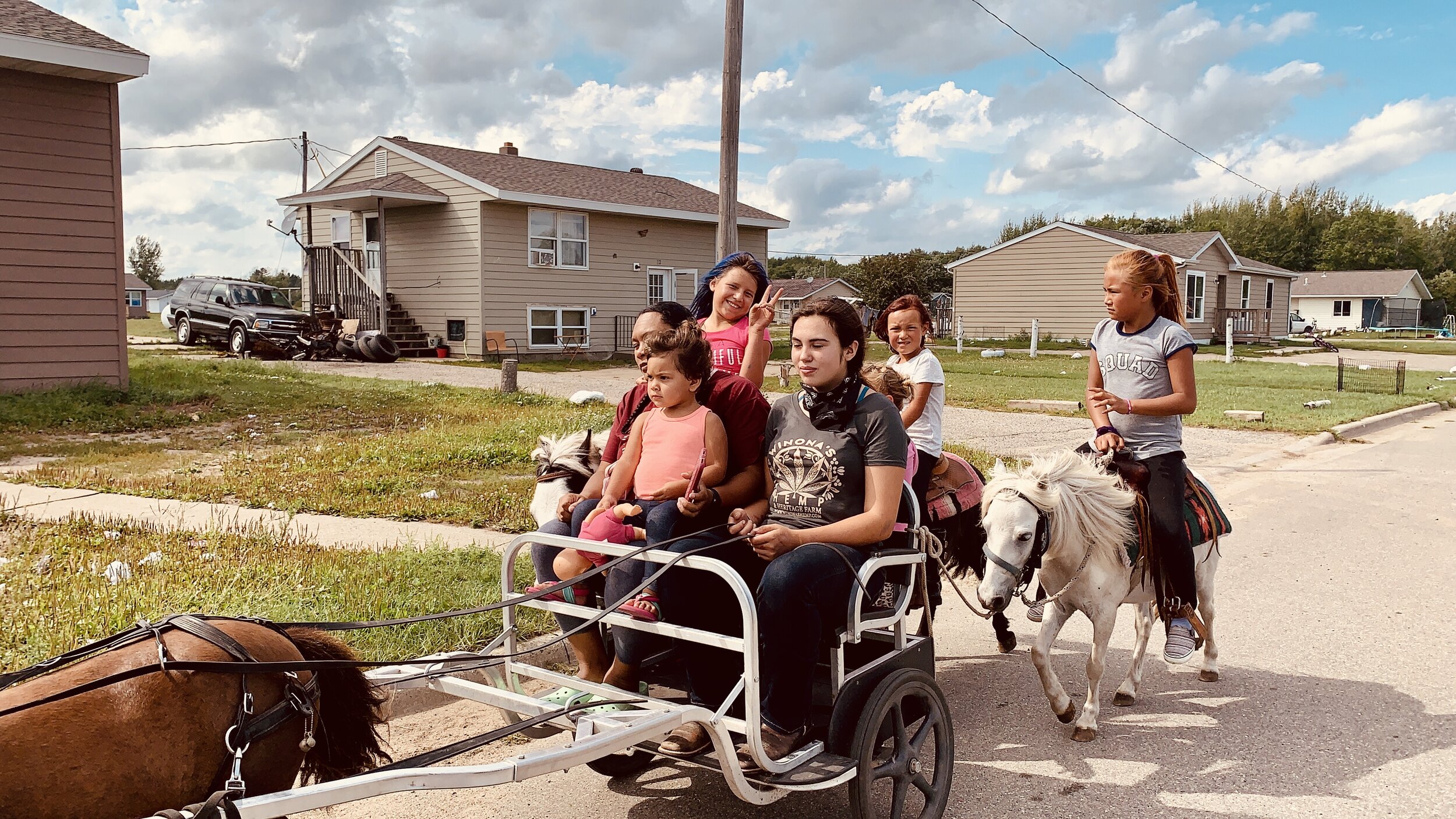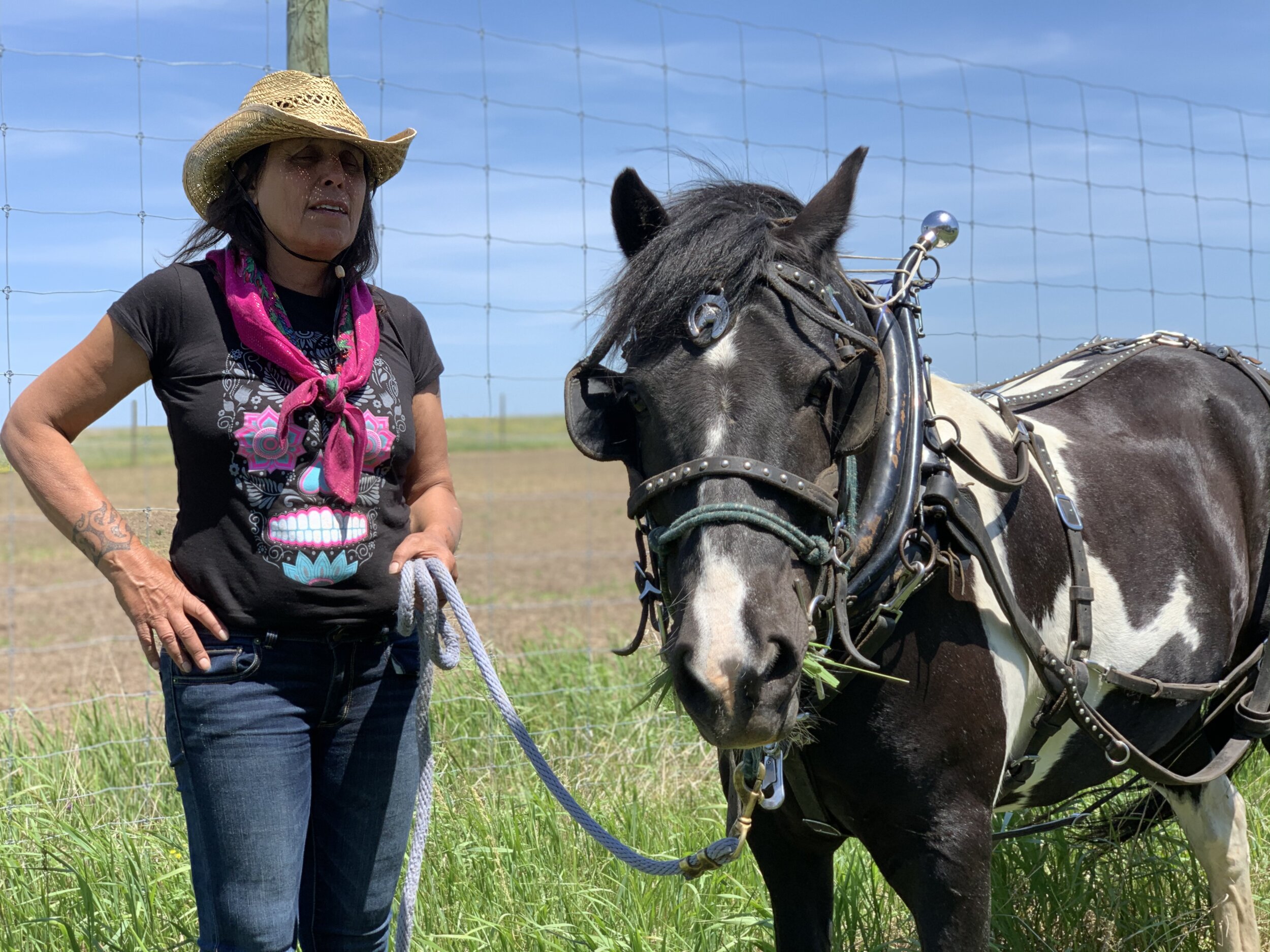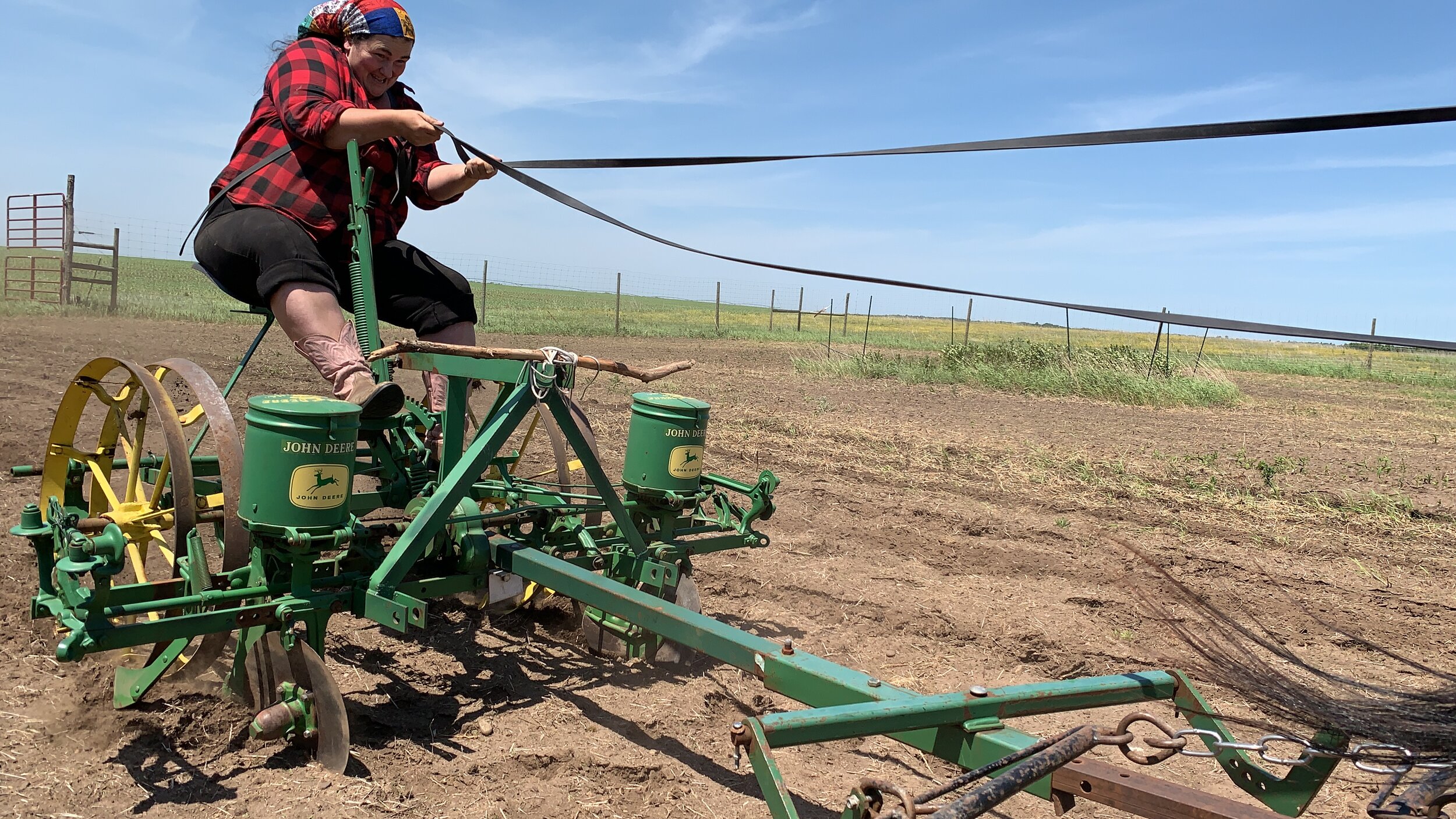Future Leaders Driving! photo credit: Melina Dailey
I start a lot of stories now, with: “When I used to Fly.”
That was my last life.
I used to have this superpower of flying all over the world. It’s true. I flew out of Fargo’s Hector Airport to the far reaches of Italy, Istanbul, and even Calgary. Those were the days. I sat next to cool people. I have a closet full of beautiful clothes that I used to wear when I would give a lecture at a university. Imagine this: I would talk, and people would clap. Wow, that was sort of an amazing time in my life. And, more than that, I’ve met some admirable people in my life and travels- Archbishop Desmond Tutu, lots of musicians, and Indigenous leaders, Supreme Court Judges, organic farmers and political leaders. All inspirational.
The memories are full of smells, tastes, and feelings. I would look forward to my trips. I used to love getting through security at the airport. Like it was a safe place. My little world was perfect, get a cup of coffee, read a New York Times, watch some people. I loved TSA so much that I would chat with my friends there, and one of the TSA guys saved my relative who had a heart attack right there at the Fargo Airport. A whole world at Hector Field.
That plane ticket and hotel room was like a working vacation from the huge household of grandchildren, dogs, horses and goats. It was a sort of fabulous life I used to have.
Photos by Sarah LittleRedfeather Design
That was then. That’s not now.
I have all sorts of clothes I don’t wear any more. I just look at those clothes and smile. They are distant memories. My children and grand children do not clap for me when I speak. I have adapted.
Adaptation is something that a plant or an animal does to survive. Not everyone makes it, some can’t adapt quickly enough to changing climate , big storms, or droughts.
Like that shrimp that travels from where it’s raised in Scotland to China , where it is deveined, to a Walmart near you. That’s not sustainable. And, that was then, this is now.
The fact is that this pandemic has brought the industrial world to its knees and shown us that we are actually not in charge. How amazing is that? We can make up all sorts of predictions, run models till we are blue in the face, speculate on miracle cures, and we have no idea still how it is going to go. The US has a quarter of the world’s cases. And that number is not going down. So, I am going to focus on adapting. That seems like a smart idea. After all I come from peoples who have survived quite a bit. You could say I come from post apocalyptic people- on both sides; the Jews and the Anishinaabe. So, I am going to see what I can learn from history and figure out how to survive with grace and elegance.
In fact, I am going to make a better place and life.
How to adapt?
Get local, use our blessed postal service, and re-find yourself and your neighbors.
What did I notice first? Time. Time’s not what it used to be. Instead of looking at my phone, a digital time, I check the weather. I wonder if the rice is ripe, or the maple sap is running. That’s time on the land.
In Anishinaabemowin, this is Manoominike Giizis, the Wild Rice Making moon. It’s the time of the chokecherries, bergamot and zucchinis for sure. It’s the time of manoominike giizis.
Instead of hustling to pay bills, I’m cutting back. Getting rid of stuff, cleaning my darn house, and becoming more self sufficient- from food to energy. I am going for half the food in my house to be from within l00 miles. And now, I’m planning for the power outages which will come with climate change, making sure I’ve enough wood to heat my house, and planning for solar. That’s a challenge I can live with. No masking up in this garden. I’m looking at my Amish neighbors, they speak about “that’s enough,” instead of always wanting more.
That’s an ethic of adaptation, stop being excessive, be content.
The schools look like a gamble in family health. Honestly, I am not sure what relevance some of the mass education has for my descendants. After all, they are my retirement plan. I think my 40l K is not going to be worth much, so I think I’ll make sure my grandchildren know how to garden, install solar energy and heat our homes. And, they should know some history; she’s a good teacher.
Arundhati Roy, the Indian writer talks about pandemic as portal, noting that pandemics cause our worlds to change. In Ojibwe history we understand change and adaptation. We are, after all, post apocalyptic people, so we’ve got a few ideas. Change is inevitable.
I miss you TSA folks, for sure, and hope we all adapt. Maybe you all can work at the electric train powered by renewable energy from North Dakota, that would be a cool adaptation. In the meantime, be well, and let’s roll up our sleeves for a better re-localized future.
Away is far, here is good.


